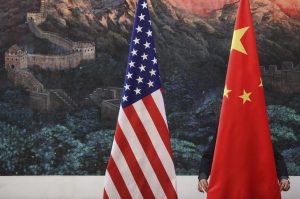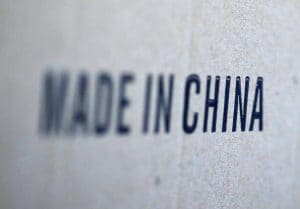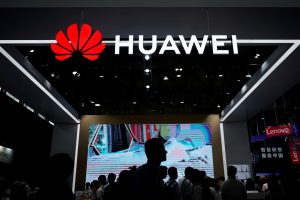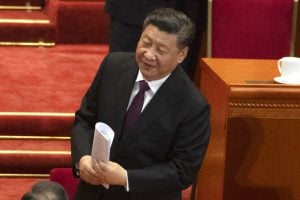US, China trade meeting ends with sharp response to Trump
Summary
As the US Trade Representative Robert Lighthizer and Treasury Secretary Steven Mnuchin landed in Shanghai on Tuesday, Trump accused Beijing on Twitter of stalling and warned of a worse outcome for China if it continued to do so.
Talks between US and Chinese trade officials seeking ways to end a year-long trade war lasted barely half a day before ending on Wednesday with a terse response from China’s Foreign Ministry to US President Donald Trump’s warning not to stall.
As the US Trade Representative Robert Lighthizer and Treasury Secretary Steven Mnuchin landed in Shanghai on Tuesday, Trump accused Beijing on Twitter of stalling and warned of a worse outcome for China if it continued to do so.
This week’s meetings, the first in-person trade talks since a G20 truce last month, amounted to a working dinner on Tuesday at Shanghai’s historic riverfront Fairmont Peace Hotel and a half-day of negotiations on Wednesday. Neither team made immediate public comments.
Chinese Vice Premier Liu He, who leads the Chinese delegation, waved off Lighthizer, Mnuchin and other US officials as their motorcade pulled away from Shanghai’s Xijiao State Guest Hotel following a group photo session that concluded around 1:45 pm, about 30 minutes before it was originally scheduled to begin.
A US government official told Reuters that the US officials were headed to the airport.
The trade war between the world’s two largest economies has disrupted global supply chains and shaken financial markets as each side have slapped tariffs on billions of dollars of each other’s goods.
An official Chinese government survey released on Wednesday showed China’s factory activity shrank for the third month in a row in July, underlining the growing strains the row has placed on the Number 2 economy.
The Shanghai talks were expected to centre on “goodwill” gestures, such as Chinese commitments to purchase US agricultural commodities and steps by the United States to ease some sanctions on Chinese telecoms equipment giant Huawei Technologies Co Ltd, a person familiar with the discussions told Reuters earlier.
Those issues are somewhat removed from the more core US complaints in the trade dispute, including Chinese state subsidies, forced technology transfers and intellectual property violations.
‘NO DEAL IS FINE’
As talks were just beginning on Tuesday, Trump said on Twitter that China appeared to be backing off on a pledge to buy US farm goods, and he warned that if China stalled negotiations in the hope that he wouldn’t win re-election in the November 2020 U.S. presidential contest, the outcome will be worse for China.
“The problem with them waiting … is that if & when I win, the deal that they get will be much tougher than what we are negotiating now … or no deal at all,” Trump said.
Chinese Foreign Ministry spokeswoman Hua Chunying, responding to a question about those tweets, said she was not aware of the latest developments during talks, but that it was clear it was the United States who continued to “flip flop”.
“I believe it doesn’t make any sense for the US to exercise its campaign of maximum pressure at this time. It’s pointless to tell others to take medication when you’re the one who is sick,” Hua told a news briefing.
Trump and Chinese President Xi Jinping agreed in June at the G20 summit in Osaka, Japan, to restart trade talks that stalled in May, after Washington accused Beijing of reneging on major portions of a draft agreement — a collapse in the talks that prompted a steep US tariff hike on $200 billion of Chinese goods.
The US Commerce Department put Huawei on a national security blacklist in May, effectively banning US firms from selling to Huawei, a move that enraged Chinese officials.
Trump said after the Osaka meeting that he would not impose new tariffs on a final $300 billion of Chinese imports and would ease some US restrictions on Huawei if China agreed to make purchases of US agricultural products.
But so far, US semiconductor and software makers are still mostly in the dark about the administration’s plans.
In Sao Paulo on Tuesday, US Commerce Secretary Wilbur Ross said decisions on license applications by US firms to resume some sales to Huawei could come as early as next week.
Hu Xijin, editor-in-chief of China’s state-run Global Times tabloid, wrote on Twitter that the negotiators had “efficient and constructive” exchanges.
“The two sides discussed the increasing purchase of US farm products and the US side agreed to create favourable conditions for it. They will hold future talks,” Hu said, without elaborating.
Earlier, the Global Times said if Washington still holds the illusion that Beijing will somehow cave in and compromise on issues concerning sovereignty, “then no deal is fine”.

Elon Musk forms several ‘X Holdings’ companies to fund potential Twitter buyout
3 Mins Read
Thursday’s filing dispelled some doubts, though Musk still has work to do. He and his advisers will spend the coming days vetting potential investors for the equity portion of his offer, according to people familiar with the matter









 Listen to the Article
Listen to the Article  Daily Newsletter
Daily Newsletter









